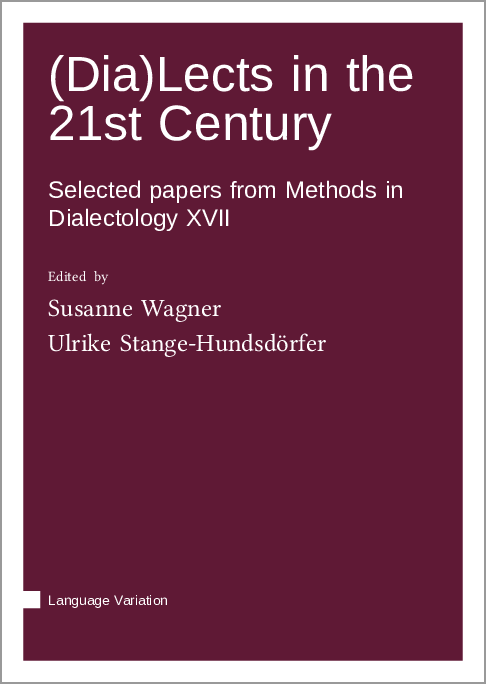We log anonymous usage statistics. Please read the privacy information for details.
(Dia)Lects in the 21st Century: Selected Papers from Methods in Dialectology XVII
Synopsis
This book offers an in-depth exploration of contemporary issues and methodologies in the fields of dialectology and sociolinguistics. Readers will find a diverse collection of studies that examine how language varies and changes across different regions, communities, and social contexts. The book covers a wide range of languages, including German, English, Yiddish, Russian, and Japanese, providing a global perspective on linguistic diversity.
Key themes include the use of modern data sources, such as social media, to study language patterns and the impact of digital communication on regional dialects. The book also addresses the dynamics of language contact in expatriate communities, revealing how speakers adapt and merge linguistic features from different dialects.
Several chapters focus on the evolution of dialectological research, offering critiques and new approaches to studying regional language variations. Readers will also encounter innovative methods, such as cognitive geography, which uses mental representations of space to understand dialect variation, and tone distance measures, which are crucial for studying tonal languages.
Additionally, the book presents case studies on how non-experts perceive and categorize dialects, providing insights into the public's understanding of linguistic diversity. It also tackles challenges in selecting dialect speakers for research, especially in urban environments, where traditional criteria may no longer apply.
Overall, this book is a valuable resource for linguists, researchers, and anyone interested in the complex and ever-changing landscape of human language. It highlights the importance of adapting research methods to keep pace with the evolving nature of language and offers fresh perspectives on how we study and understand dialects and language variation.
Chapters
-
Part 1: Geolinguistic methods and big data in dialectology
-
Extracting “non-standard” data from the Twitter API
-
Infinitival ain’t in African American English
-
The ‘Atlas of colloquial German in Salzburg’
-
A cognitive geographic approach to dialectologyCognitive distance as a predictor for perceptual dialect distance
-
Part 2: Corpus-based studies and dialect change
-
A directional shift in linguistic changeA longitudinal study on English-speaking Expatriates in Japan
-
Minimal minimal pairsVocalic length in Unterland and Polish Central Yiddish
-
Tracking language change in real timeChallenges for community-based research in the 21st century
-
Corpus-based Low Saxon dialectology
-
Leaner, cleaner and full of attitudeThe New Atlas interviews
-
Part 3: Dialectology, linguistic identity, and social factors
-
“Das ist dann schon total cool zu sagen, so Machanot”Revealing speakers’ justifications for linguistic choices
-
Regional prosodic variation in the speech of young urban RussiansQuantitative vowel reduction in Moscow and Perm
-
How important is information about grandparents when selecting a dialect speaker?
-
Part 4: Theoretical approaches and innovations in dialectology
-
Dialectology as “Language Making”Hegemonic disciplinary discourse and the One Standard German Axiom (OSGA)
-
„Es werden im wesentlichen [sic!] nur Wörter aufgenommen, welche deutlich unterschiedlich zum Hochdeutschen sind.“On the verticality of lay dialect collections and the attempt to measure it
-
Applying the state-of-the-art tonal distance metrics to a large dialectal dataset
-
Convergence and divergence of tone paradigms across Tai dialects in the 21st century




